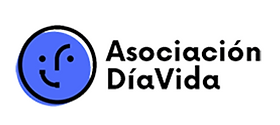
About
Language Matters
Language Matters has evolved as a concept across diabetes over the last few years and continues to gain strength.
The language used by healthcare professionals (HCP’s) can have a profound impact on how people living with diabetes, and those who care for them, experience their condition and feel about living with it day-to-day. At its best, good use of language; verbal, written and non-verbal (body language) which is more inclusive and values based, can lower anxiety, build confidence, educate and help to improve self-care. Conversely, poor communication can be stigmatising, hurtful and undermining of self-care and have a detrimental effect on clinical outcomes. The language used in the care of those with diabetes has the power to reinforce negative stereotypes, but it also has the power to promote positive stereotypes.
People with diabetes internalise messages from the media, from those around them, but most of all from their healthcare providers. When these messages are perceived negatively, whether it is intended or not, this can lead to feelings of shame, guilt and resentment. People who are ashamed of a condition will find it much harder to engage and manage that condition proactively.
This guide provides practical examples of language that will encourage positive interactions with people living with diabetes and subsequently positive outcomes.
In these documents, you will find practical examples of common phrases that can be substituted with others and tips for a more healthy and positive communication between HCP's and people living with Diabetes.
A Global Movement
Led by Prof. Partha Kar in association with NHS UK
Led by The Diabesties Foundation in association with Diabetes India
Led by Asociación Día Vida Pro Diabetes. Costa Rica
Led by The Diabesties Foundation in collaboration with NHS UK and Diabetes India
Led by Diabetes Australia
"Raise your words, not your voice.
It's the rain that grows flowers,
not the thunder."
- Rumi
Contributors
A big thank you to all the people with Diabetes, Health Care Professionals and organisations that have contributed to the Language Matters Movement!




.png)
.png)








